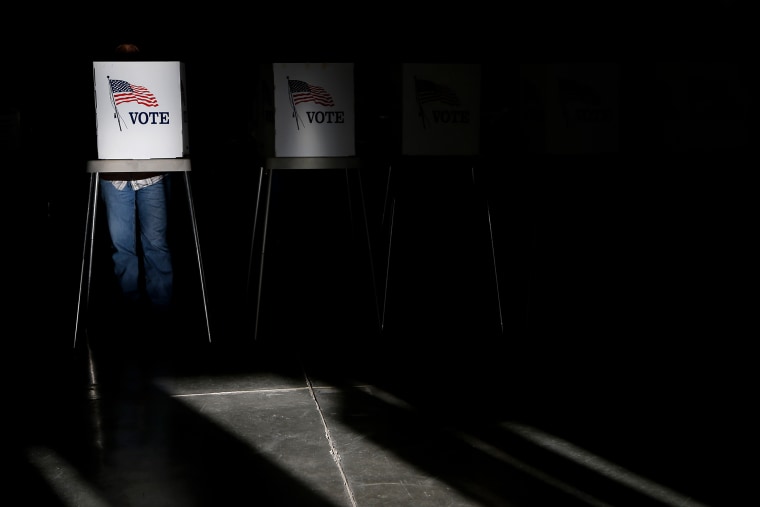In theory, congressional support for a renewed Voting Rights Act shouldn't be too heavy a lift. On a substantive level, a legislative remedy to the Supreme Court ruling gutting the law is necessary, and there's at least some
bipartisan backing for a new law.
And on a political level, Republicans have been forced to deal with some
racially charged controversies of late, and restoring a landmark voting-rights statute from the civil-rights era would go a long way towards helping the GOP's standing with minority communities.
The problem is, Republicans
just don't want to expand voting rights. In fact, as of this morning, one key lawmaker suggested he doesn't see the point.
House Republicans have determined that it's not "necessary" to enact a legislative fix to the Voting Rights Act in the wake of the 2013 Supreme Court decision that gutted a centerpiece of the law, the chairman with jurisdiction over the law told reporters on Wednesday. "There are still very, very strong protections in the Voting Rights Act in the area that the Supreme Court ruled on, which is the question of whether or not certain states -- there were, I think 11 states, all Southern states that were required by law to seek precleareance of any changes in where polling places are located and other matters like that," House Judiciary Chair Bob Goodlatte (R-VA) said at a breakfast hosted by the Christian Science Monitor.
The Virginia Republican added that the Supreme Court "found that the instances of discrimination were very old" -- a claim that might even appear true if one ignores all of the minority voters disenfranchised by GOP-imposed restrictions in recent years.
I suspect some voting-rights advocates may see Goodlatte's comments and respond, "Well of course a Republican Congress isn't going to work on the Voting Rights Act."
And while some cynicism may be understandable, it's important to realize that voting rights weren't a partisan issue up until very recently.
Remember, when Congress last considered the VRA -- the law was reauthorized in 2006 -- support for the law was nearly unanimous. In the Senate, it was literally unanimous. President George W. Bush held a nice signing ceremony to celebrate it. In the House, a young congressman by the name of Bob Goodlatte
even voted for it.
The proposed fix, called the "Voting Rights Amendment Act," is itself
a bipartisan compromise that would have become law last year were it not for broad Republican opposition.
As of this morning, it seems the issue is likely dead until 2017 at the earliest.
Before we move on, I'm reminded of
this recent piece from msnbc's Zach Roth following the controversy surrounding House Majority Whip Steve Scalise (R-La.).
On Tuesday, two top civil rights leaders wrote to Scalise expressing concern about the 2002 speech and other aspects of his record on civil rights issues, and requesting a meeting. "Specifically," wrote Wade Henderson of the Leadership Conference on Civil and Human Rights and Marc Morial of the National Urban League, "we wish to discuss your position regarding efforts to repair the Voting Rights Act, the most important civil rights act since the passage of the 15th Amendment to the Constitution, which is celebrating its 50th anniversary this year, and which was gutted by the U.S. Supreme Court's 5-4 decision in Shelby County v. Holder (2013)." The message was clear: Supporting a fix to the VRA would be the perfect way for Scalise to mend his tattered reputation with minorities, and neutralize Democratic attacks.
It was a good idea, which will apparently not work.
